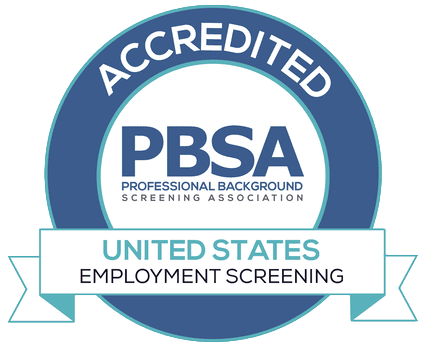The recent decision by President-elect Trump to advocate for more comprehensive background checks beyond FBI fingerprinting has sparked significant conversation. Some critics believe this move aims to bypass established procedures, but in reality, it reflects a commitment to creating a more rigorous process for vetting candidates.
Regardless of political affiliation, the merits of this approach deserve a closer look, especially for industries and organizations prioritizing safety, trust, and compliance. Here is why expanding the scope of background screening is a sound and forward-thinking strategy:
- Fingerprinting Alone Is Not Enough
While FBI fingerprinting is a valuable tool in background screening, it is not exhaustive. The FBI database primarily includes records from federal and state law enforcement agencies, but it may miss civil records, traffic violations, or charges that were not fingerprint-related. Charges that do not typically warrant fingerprinting can still indicate patterns of concerning behavior, especially if they are repeated.
A more comprehensive approach, including local jurisdiction searches, multi-jurisdictional database checks, employment verification, education verification, and reference checks, provides a fuller picture of an individual’s history and character.
It is important to note that the objection is not to using fingerprinting—it is to relying solely on fingerprinting. Without supplemental checks, employers may fail to obtain the complete and accurate information they need to make informed hiring decisions.
- The COVID-19 Fingerprinting Gap
During the COVID-19 pandemic, fingerprinting services across the country were suspended or severely limited. Many individuals arrested during this period were not fingerprinted due to public health concerns and staffing shortages. As a result, their criminal records may not have been uploaded to the FBI database.
This gap highlights the need for broader background checks that go beyond fingerprints. Supplementing fingerprinting with local and state criminal record checks, court record reviews, and employment verification ensures that organizations avoid unknowingly hiring individuals with incomplete records.
For instance, some states reported up to a 40% decrease in fingerprint submissions during the pandemic. However, these records likely appear in local dockets, which can be accessed through a comprehensive background check.
- Strengthened Workplace and Public Safety
For industries like healthcare, manufacturing, education, and construction, safety is paramount. While FBI fingerprinting might reveal criminal records, broader background checks can uncover additional information, such as histories of workplace misconduct or fraudulent activity.
For example, ProVerify’s comprehensive screening services often identify discrepancies that traditional fingerprinting misses. An FBI fingerprinting search will not indicate if a candidate was dismissed from their last job for gross misconduct, but a professional reference check or employment verification might.
This additional diligence protects employees, customers, and the public, ensuring safer workplaces and communities.
- Enhanced Regulatory Compliance
Industries such as financial services, childcare, and education often face regulatory requirements that extend beyond traditional criminal background checks. Comprehensive screenings help ensure compliance with laws like the Fair Credit Reporting Act (FCRA) and specific state requirements, such as Pennsylvania’s Act 153 for Child Protective Services clearances.
While meeting minimum requirements might suffice for compliance, a broader screening process can uncover critical information that could prevent legal or reputational risks.
- Avoiding False Negatives
Fingerprinting relies on records being uploaded to the database, but many crimes, particularly misdemeanors, may go unrecorded or be delayed. Moreover, a clean fingerprint record does not mean an individual lacks concerning behaviors or histories.
Comprehensive background checks incorporate local, state, and national court records, employment history, and other databases to ensure no stone is left unturned.
- Improved Hiring Accuracy and Workforce Quality
Organizations that implement robust background checks are better positioned to hire qualified, trustworthy candidates. Screening that includes academic verifications, reference checks, and drug testing minimizes risks and promotes integrity within the workforce.
ProVerify has supported organizations across the country in ensuring their workforce aligns with professional and ethical standards. By going beyond fingerprinting, businesses create safer and more effective teams.
Conclusion
President Trump’s decision to support more comprehensive background checks is a commendable move that aligns with the needs of modern organizations. Employers, regulators, and the public can all benefit from a system that prioritizes thoroughness, safety, and compliance.
When it comes to hiring, too much information is rarely a problem—but too little information can be disastrous.
If you are interested in learning more about how comprehensive background checks (both fingerprinting and traditional background screening) can support your organization, contact ProVerify™ by Application Verification at 412-877-8937 or email jkerrigan@applicationverification.com. Visit our website at www.applicationverification.com.
A quick Google search on this topic will reveal different viewpoints, so a few are included below for your review.


